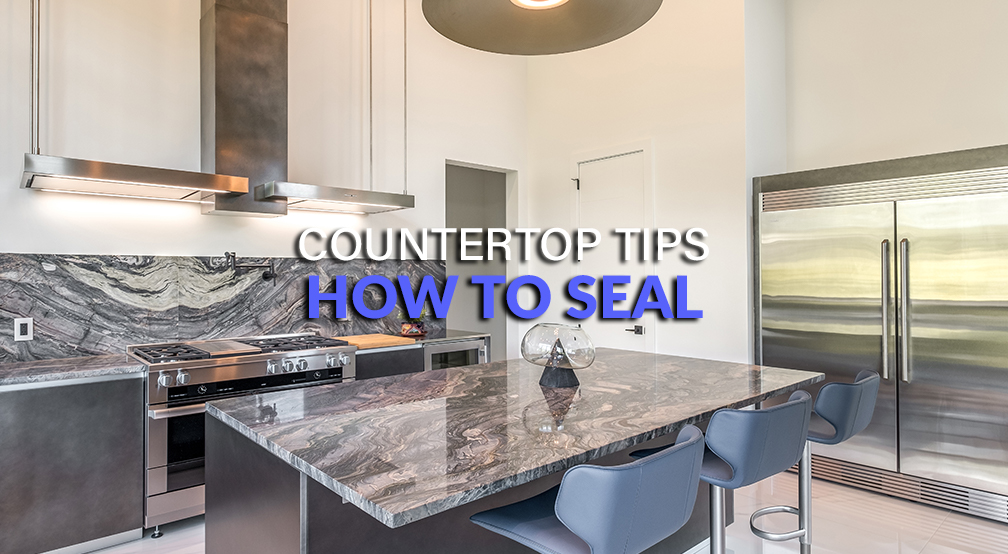To keep your beautiful stone countertop looking brand new, free of stains and discolorations, you must routinely seal it. As a customer of Sims-Lohman, we apply a sealer to your granite at the time of installation. Factors such as your choice of stone, its finish, and its location will help you determine how often you need to reseal your stone. In most cases, we recommend you reapply your stone every 1 – 3 years. Here is some helpful information about sealing and protecting your tops.
Do you need to seal all countertops?
You may think that all stone countertops need to be regularly sealed, but that is not necessarily true. Because they are natural materials, quartz, granite, and marble countertops differ piece by piece. Their density and porosity are dependent upon the color and pattern of the stone. Typically black granite countertops are extremely dense and do not absorb stains or sealers. Other types of granite are very porous and require several coats of sealer. Marble and limestone have a calcite-base and may react to acids.
To determine if your countertop needs to be sealed, test the surface in a hidden spot. Put a few small drops of lemon juice on the counter and observe the reaction. If it takes a minute or two to absorb, you will need to seal the entire countertop to protect it from stains. If it does not soak in at all, your stone countertop does not need sealing. If the spot turns dark, however, the stone is most likely a calcite-based limestone, which requires extra care when sealing.
You can reach out to your countertop experts at Sims-Lohman for care and maintenance information.
What countertop sealing products should I use?
For granite countertops, a fluorocarbon aliphatic resin sealer is ideal because it does not evaporate like silicon-based sealers. Sealers, also known as ‘impregnators,’ work by soaking into the stone and forming a protective barrier that keeps out stains and liquids. Limestone, marble, and other calcite-based stones require more care. They can be stained and damaged by acidic substances, despite being sealed.
Solvent Based Stone Sealers:
They are great at repelling water! Solvents absorb deeper than water-based stone sealers but can be tricky. They have a strong odor and have been reported to cause problems with stones that were factory treated with resin.
Water Based Stone Sealers:
They are great at repelling oil! Water sealers do not penetrate as deeply as solvents. This quality makes them extremely good for repelling liquids, as they sit just beneath the surface of your countertop to provide a protective barrier. In addition, they are safer for the environment, easier to apply and safer to handle.
How do you seal a countertop?
It only takes a few minutes to seal your countertop like a professional. Although it is quick and a relatively easy project, it is important to follow the product instructions for the best results. It is also a good idea to test any new sealer on a small, inconspicuous area of the countertop before sealing the entire surface.
For Granite, or other stone surfaces, using a microfiber cloth, wash the top with warm water and mild dish soap. When you are done, use a dry microfiber cloth to dry the surface. Once your top is ready to be sealed, simply spray on the sealant and let it soak in thoroughly. Buff off any excess. The trick is to apply the product as evenly as possible.
Following these steps should help you maintain the beauty of your investment over the course of time. Of course, we are happy to help you if you have questions on which products you should be using.







